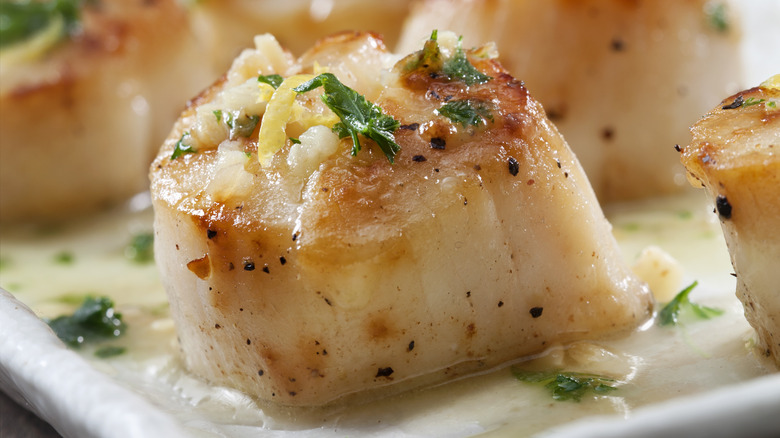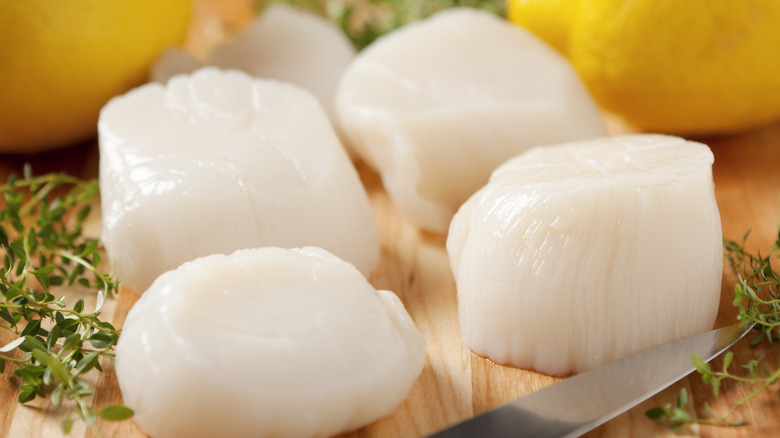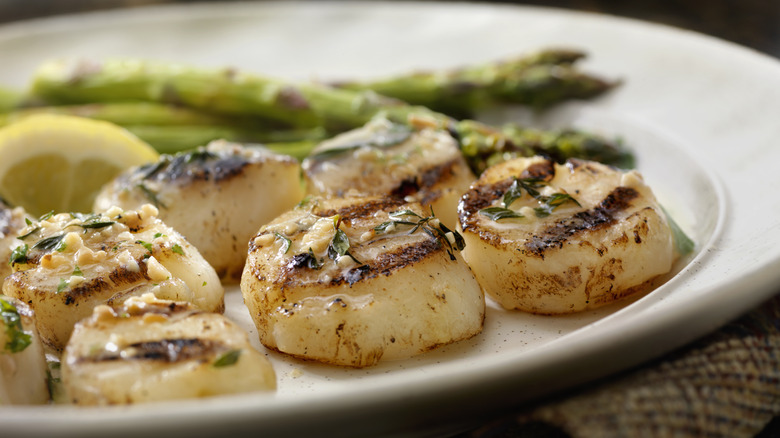How To Cook Frozen Scallops To Perfection
Scallops are one of those dishes that seem impossibly luxurious when you order them off a restaurant menu. Delicate, tender, and with a flavor you can't get anywhere else, scallops feel like a rare treat. The biggest secret to scallops is that you can cook them in your own home without too much difficulty as long as you follow the rules. Sure, they can be a little temperamental compared to a lot of other proteins (even more than most seafood). But, once you know what you're doing, they go from a daunting challenge to a snap — one that cooks surprisingly quickly, too.
Much like other seafood, scallops do freeze pretty well. So, how do you handle cooking scallops from frozen? Well, first off, for the love of God, thaw them first! Sure, you can cook some fish directly from frozen, but you don't want to do that with scallops. Even thawing comes with some do's and don'ts.
The rule with scallops: Thaw slowly and cook quickly
The reason you don't want to cook scallops directly from frozen is also the reason you don't want to sear frozen fish. Seafood retains a lot of moisture, which makes sense, as it lives in the ocean. When you cook directly from frozen, you wind up steaming the fish in its own unfrozen water. Excess moisture makes it impossible to achieve a good sear, and you're going to want that sear.
The rate you thaw at matters, as well. In general, the rule with food is to freeze quickly and thaw slowly. This minimizes ice crystals' chances of damaging the cell walls of the meat, which in turn preserves texture. This is also what you want to do with other foods, like cheese. Always let scallops thaw slowly overnight and in the fridge — never at room temperature.
In addition to thawing, you want to make sure to pat them dry, because you're probably going to want to cook the scallops with the classic method: pan-searing. The play here is to apply heat fast. Scallops are naturally lean (this is also why you'll want to add fat like butter or oil to the pan), so they'll get rubbery if you leave them on too long. Sear them quickly and you'll get that nice caramelized reaction on the ends — don't worry, the rest of the scallop cooks, too.
It's also possible to grill scallops
Contrary to what a lot of people believe, you can also grill scallops as long as you're quick and careful and you use an absolutely blistering amount of heat. When you think about this conceptually, it makes sense. Whether you're using a grill or pan searing them the classic way, you're applying fast, high heat to the scallops to achieve a browning effect, cooking them quickly before they turn rubbery. As with the other method, you're also going to want to be sure to add a fat to the process either by glazing the scallops in it or by rubbing the grill grates down with meat fat. And obviously, use a skewer — nobody wants to eat scallops that have to be fished out of red hot coals.
Whichever cooking method you use, just obey the commonalities when it comes to cooking scallops: Fast heat, fat, and making sure not to go directly from frozen. As long as you follow those rules, you're golden.


